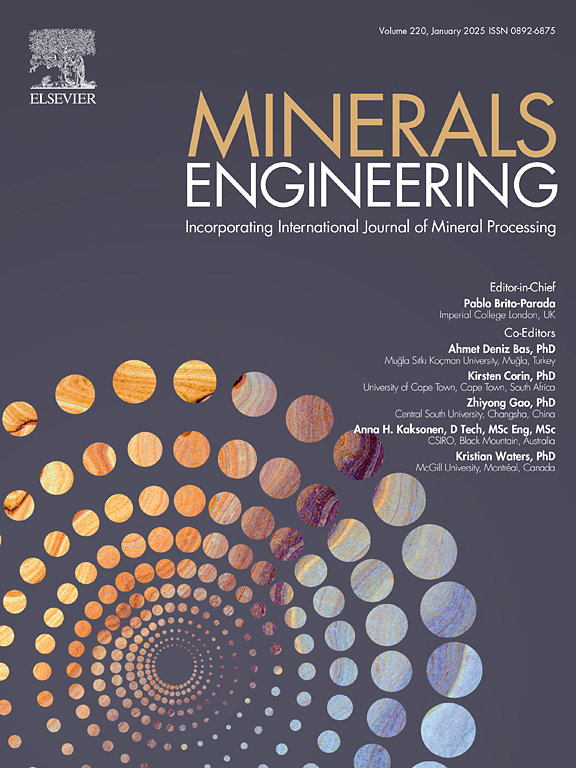Ex-situ mineral carbonation process challenges and technology enablers: A review from Australia’s perspective
IF 4.9
2区 工程技术
Q1 ENGINEERING, CHEMICAL
引用次数: 0
Abstract
While reacting CO2 with sub-surface mafic/ultramafic phases potentially captures greenhouse gas emissions, low porosity and very slow kinetics makes this problematic. Mineral processing tailings and mining wastes offer distinct particles with exposed surfaces that enhance reactivity, and Australia’s mining sector has numerous prospective tailings streams. Passive carbonation of such tailings is known, although reactivity is still usually low. This review evaluates the potential of accelerated mineral carbonation (AMC), engineered routes to facilitate mafic/ultramafic tailings carbonation.
The state-of-the-art of AMC technologies are evaluated in terms of operational principles, advantages, process challenges and environmental impacts. After providing a snapshot of Australia’s current mining industry, the best carbonation routes/practices for favorable rock types (e.g. wollastonite, serpentinite, olivine) are reviewed, highlighting their key Australian deposits or operations. Major challenges facing technology scale-up (CO2 source, particle size and associated environmental risks) are analyzed. Integrating AMC with direct air capture (DAC) provides an adjacent pure, pressurized CO2 stream to raise the viability of both technologies, while breakthroughs in secondary metal recovery or marketing carbonated end-products can also bolster business models. However, in the absence of supporting regulatory frameworks, major companies have been reluctant to adopt early-stage research, design and development to elevate AMC technologies toward commercialization.

非原位矿物碳酸化过程的挑战和技术推动因素:从澳大利亚的角度回顾
虽然CO2与地下基性/超基性相反应可能会捕获温室气体排放,但低孔隙率和非常缓慢的动力学使其成为问题。矿物加工尾矿和采矿废物提供独特的颗粒,其暴露的表面增强了反应性,澳大利亚的采矿部门有许多潜在的尾矿流。这种尾矿的被动碳酸化是已知的,尽管反应性通常仍然很低。本文综述了加速矿物碳酸化(AMC)的潜力,以及促进基性/超基性尾矿碳酸化的工程路线。
本文章由计算机程序翻译,如有差异,请以英文原文为准。
求助全文
约1分钟内获得全文
求助全文
来源期刊

Minerals Engineering
工程技术-工程:化工
CiteScore
8.70
自引率
18.80%
发文量
519
审稿时长
81 days
期刊介绍:
The purpose of the journal is to provide for the rapid publication of topical papers featuring the latest developments in the allied fields of mineral processing and extractive metallurgy. Its wide ranging coverage of research and practical (operating) topics includes physical separation methods, such as comminution, flotation concentration and dewatering, chemical methods such as bio-, hydro-, and electro-metallurgy, analytical techniques, process control, simulation and instrumentation, and mineralogical aspects of processing. Environmental issues, particularly those pertaining to sustainable development, will also be strongly covered.
 求助内容:
求助内容: 应助结果提醒方式:
应助结果提醒方式:


